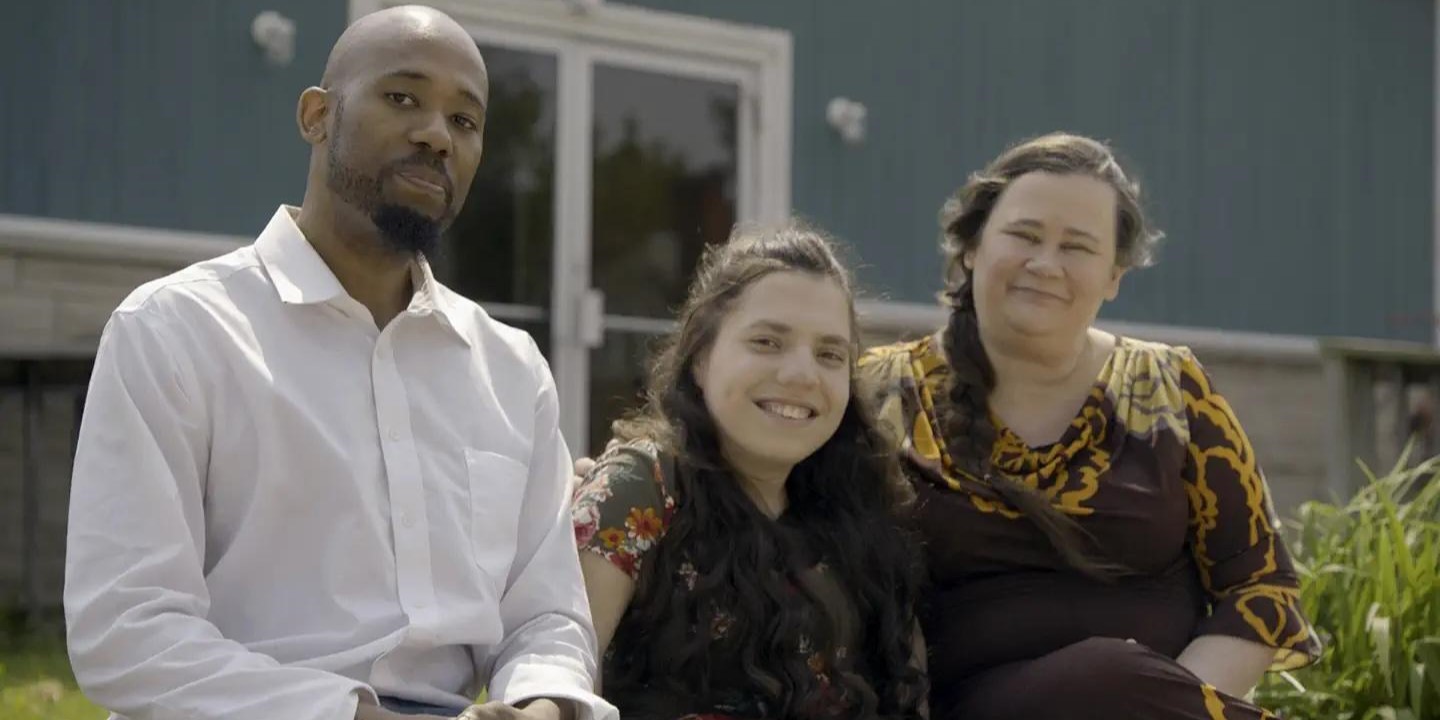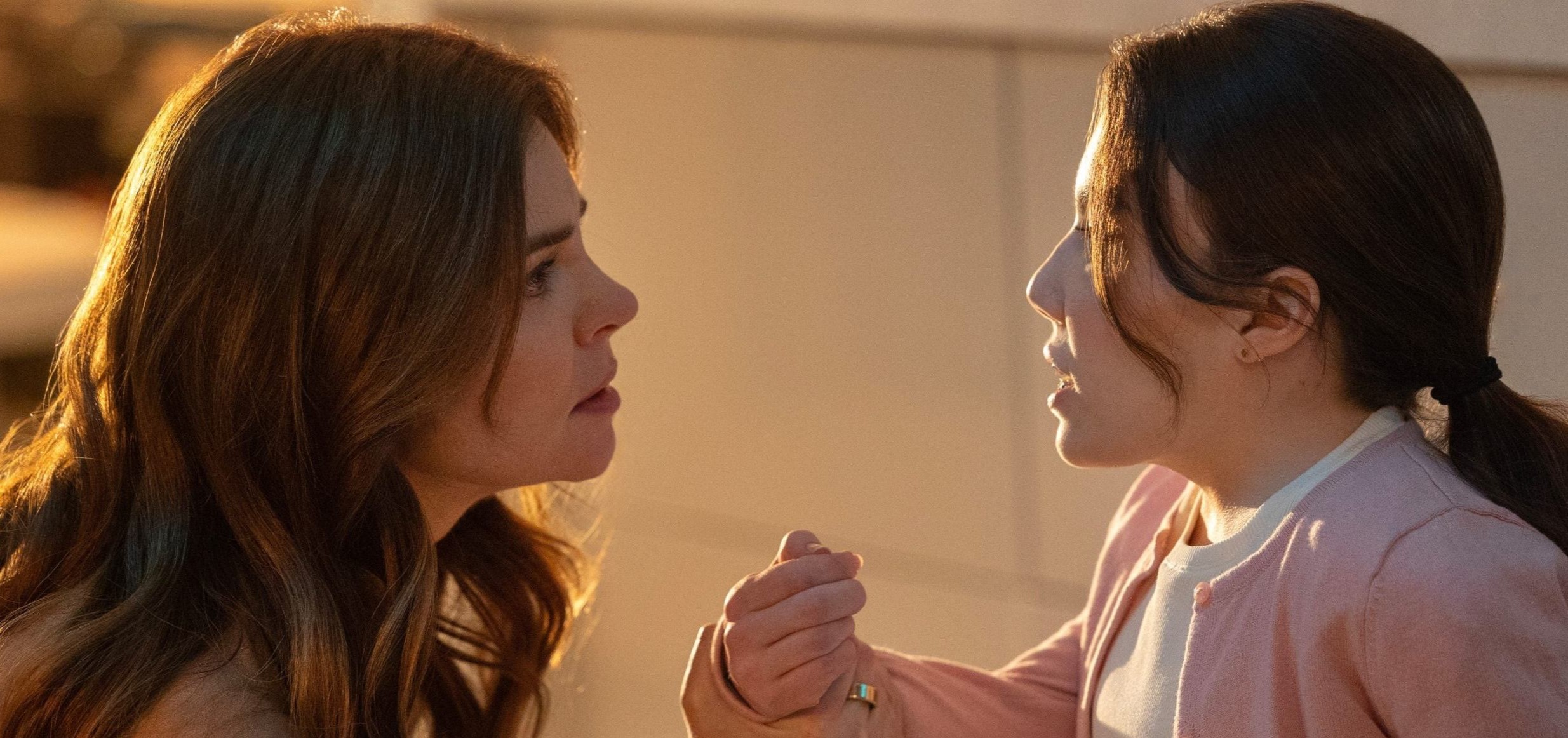Directed by Michelle Ouellet, Lifetime’s ‘The Bad Orphan’ follows the story of a family that appears to be threatened by the young girl they adopt and begins to think of her as a psychotic manipulator. Jessica and Karl are loving parents to Rhiannon but have trouble expanding their family. In an effort to do so, they adopt an eight-year-old girl named Gabby, who has special needs. However, when Jessica notices her exhibiting unusual and concerning behaviors for a young girl, she tries to talk to Karl about it. He dismisses her claims and refuses to believe that Gabby would wish them or their daughter any harm. As the narrative takes us through its twists and turns, some may seek to discover the real-life inspirations behind the film.
The Bad Orphan is Inspired by the True Story of Natalia Grace
The plot of ‘The Bad Orphan’ draws its inspiration from the true story of Natalia Grace. The film’s storyline mirrors the real-life events of the Barnett family and their adopted daughter, Natalia, a story rife with mystery, accusations, and shocking revelations. However, the Lifetime film does put its own twist on the tale, with its story being written by Doris Egan.

Natalia Grace, who is portrayed by the character of Gabby, originally from Ukraine, was adopted by Michael and Kristine Barnett in 2010. Jessica and Karl stand in for Kristine and Barnett, respectively. The Barnetts had three sons but were eager to expand their family and welcomed Natalia, who they believed to be a six-year-old girl with a rare form of dwarfism. However, shortly after her adoption, the Barnetts began to suspect that Natalia was not who she appeared to be.
Kristine Barnett claimed that Natalia exhibited behaviors that were not typical for a child. She asserted that Natalia had a sophisticated vocabulary, was uninterested in toys, and displayed signs of puberty. These observations led the Barnetts to question Natalia’s age and intentions. The situation took a darker turn when Kristine alleged that Natalia had threatened the family’s safety, attempting to harm them on multiple occasions by poisoning coffee with a cleaning agent and outright threatening their lives.

Convinced that Natalia was an adult posing as a child, the Barnetts sought legal intervention from Marion County court. In 2012, a court-ordered medical evaluation led to a judge changing Natalia’s birth year from 2003 to 1989, effectively making her an adult. Following this, the Barnetts rented an apartment for Natalia and left her to live on her own, moving to Canada with their biological children. They maintained that they were victims of an elaborate scam and that Natalia was a dangerous adult masquerading as a child to exploit them. They were charged with multiple counts of neglect of a dependent, but all charges against the couple were eventually dropped.
Natalia, however, told a different story. She insisted that she was a child and that the Barnetts had abandoned her. This claim was supported by subsequent caregivers, Bishop Antwon Mans, and his wife, Cynthia, who had sympathized with Natalia and even confronted the Barnetts on her behalf. Natalia also alleged that Kristine was trying to benefit from her monetarily, and when she could not do so, she made up false accusations against Natalia. The conflicting narratives were covered in the documentary ‘The Curious Case of Natalia Grace’ and sparked a media frenzy.

As the documentary was about to conclude on a happy note with Bishop Antwon Mans and Cynthia adopting Natalia and the cases against the Barnetts being dropped, a sudden development cast it into further mystery. The adopting couple reached out to the production crew in a frenzy, alleging that there was something very wrong with Natalia and that she felt like an enemy of the house. Natalia later reached out to her wellwishers on social media and proclaimed that all was well, but she could not disclose further details.
“I love those stories that whatever you think is happening — it’s not that,” said lead actress Betsy Brandt. “It’s a fantastic story, and it’s not what it looks like.” Thus, the Lifetime film draws heavily from and puts its own spin on the perplexing and contentious saga of Natalia Grace. By dramatizing this true story, the film delves into the profound and unsettling questions about identity and trust, reflecting the real-life twists and turns that continue to baffle and intrigue.
Read More: Lifetime’s Death Down the Aisle: Is it a True Story?


